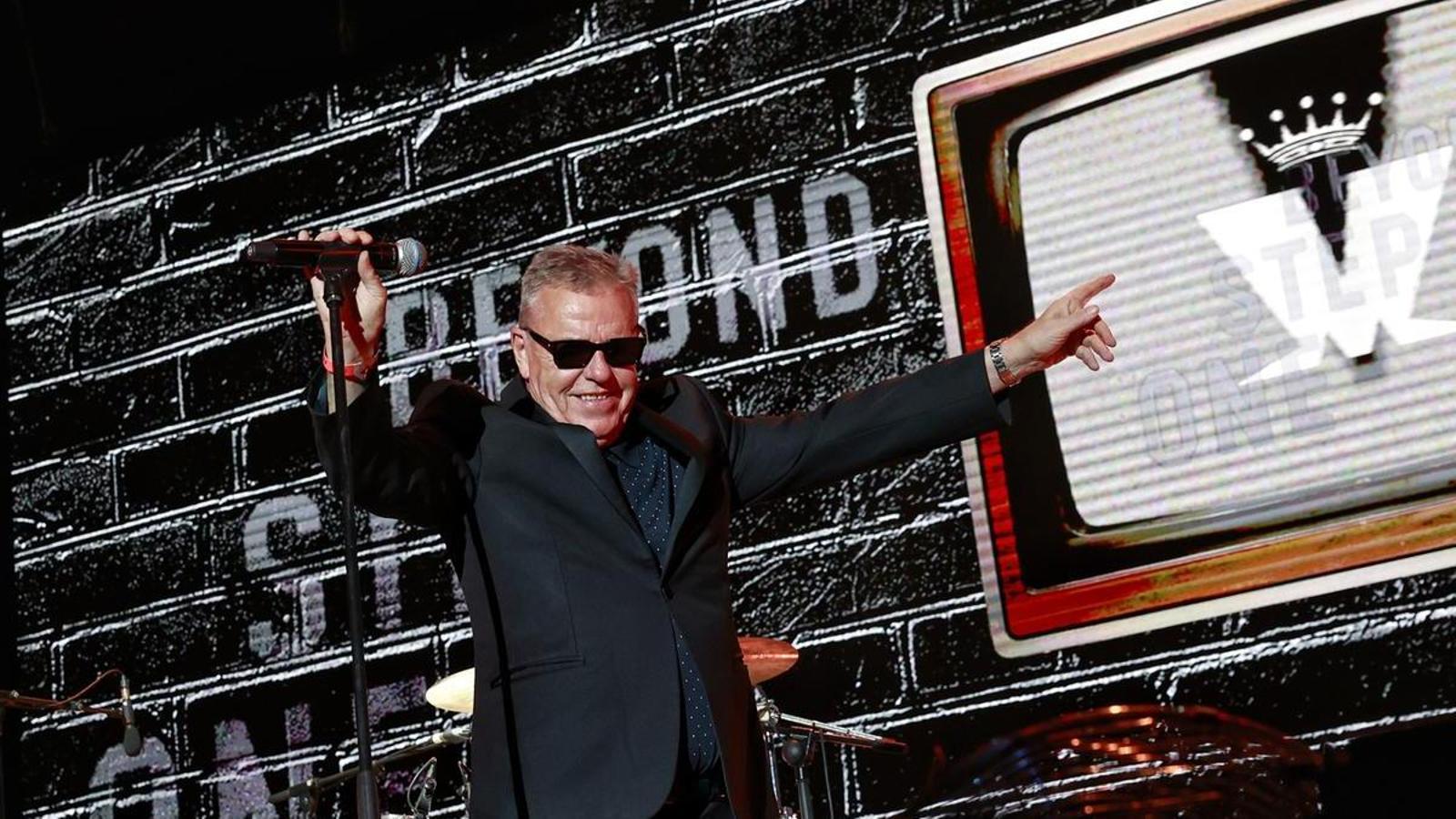Madness respects the legend, the celebration, and the sadness at Poble Espanyol
The British group offers an hour and a half of greatest hits and family sensations at the Alma Festival


BarcelonaBehind the rhythmic joy of ska and the pantomime videos of the British group Madness, there were social and personal rifts. But they didn't want drama, but comedy, which is how the British working class was often portrayed in times of crisis. And so there were people dancing to songs that weren't as cheerful as they seemed, or that were accurate portraits of working-class families made with costumbrista verses, like the immortal Our houseIt's the magic of British pop, inherited from the great storytellers of English literature. Lluís Gavaldà of Els Pets could write a doctoral thesis on this type of song.
Therefore, every time Madness visits us, we must celebrate the fact that a group of young people from Camden decided to form the group in the late 1970s. All that's needed is for the concert to respect the legacy. It happened. in 2022 at the Pedralbes Festival, and also this Friday at Poble Espanyol, as part of the Alma Festival. Incidentally, of the 20 songs in the repertoire, they repeated 18, and the only changes were in the middle section, when they played the version of The harder they come, by Jimmy Cliff, and Grey day, from the album Madness 7 (1981), a dub-pop song with the echo prolonging the end of the verse. The rest was the same, familiar and well-known, even including some cracking jokes about the Spice Girls and the comedy tricks of thieves and night watchmen that saxophonist Lee Thompson has been promoting for over forty years. Singer Graham Suggs McPherson, 64, maintains all his charisma behind his sunglasses and his microphone skills; his voice isn't what it used to be, but he knows how to use it dramatically, especially in songs like Lovestruck and Pregnancy (with the characteristic keyboard and metal game), and also in the most sour Mr. Apples (from the album Can't touch us now, 2016).
Another way to view the concert is to read it as a Madness story, a tale that begins by honoring Jamaican musician Prince Buster (1938–2016), the decisive influence on the British group. They opened the performance with a cover of the ska master (One step beyond), the third song they played was The Prince, the band's first single. By then, the packed Poble Espanyol crowd was already dancing, engaged, to the rhythmic cadence of ska, moderately, as befits the average age of the audience. And the penultimate song was Madness, the Prince Buster piece that gives the London group its name. The story continues with the pop talent, that of My girl and Wings of a dove, for example, now sung with a lower but equally exciting tone, and goes through the costumbrismo of Bed and breakfast man, another pop prodigy that places Madness in a tradition shared with other portraitists of urban nature such as Ray Davies (The Kinks), and which includes the forays into the dark side of Mr. Apples.
It was in the second half of the concert that the songs that made them so popular in the 1980s came together, their success sometimes masking the sadness or vulnerability of their backstories. House of fun, Baggy trousers and Our house made the audience accelerate the pace of cadence and enthusiasm. The story of Madness would be incomplete without the contrast between the ode to love It must be love, Labi Siffre's version that the audience knew how to sing with conviction, and the final joke of Night boat to Cairo, before which Suggs used a white towel to tease Thompson. The concert was over, but the Poble Espanyol didn't empty out, because the people held their positions while the technicians began to dismantle the equipment and the music played. Always look on the bright side of life, the film's farewell song Life of Brian.
